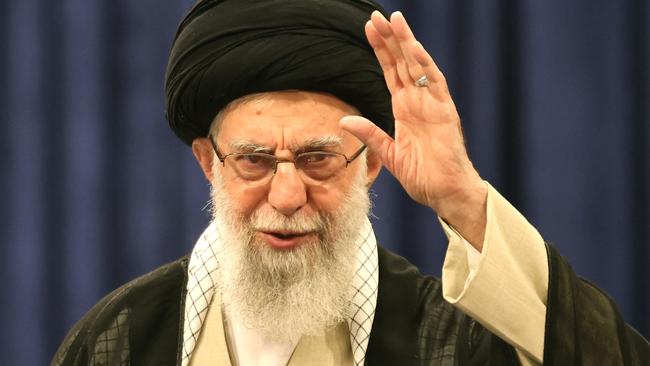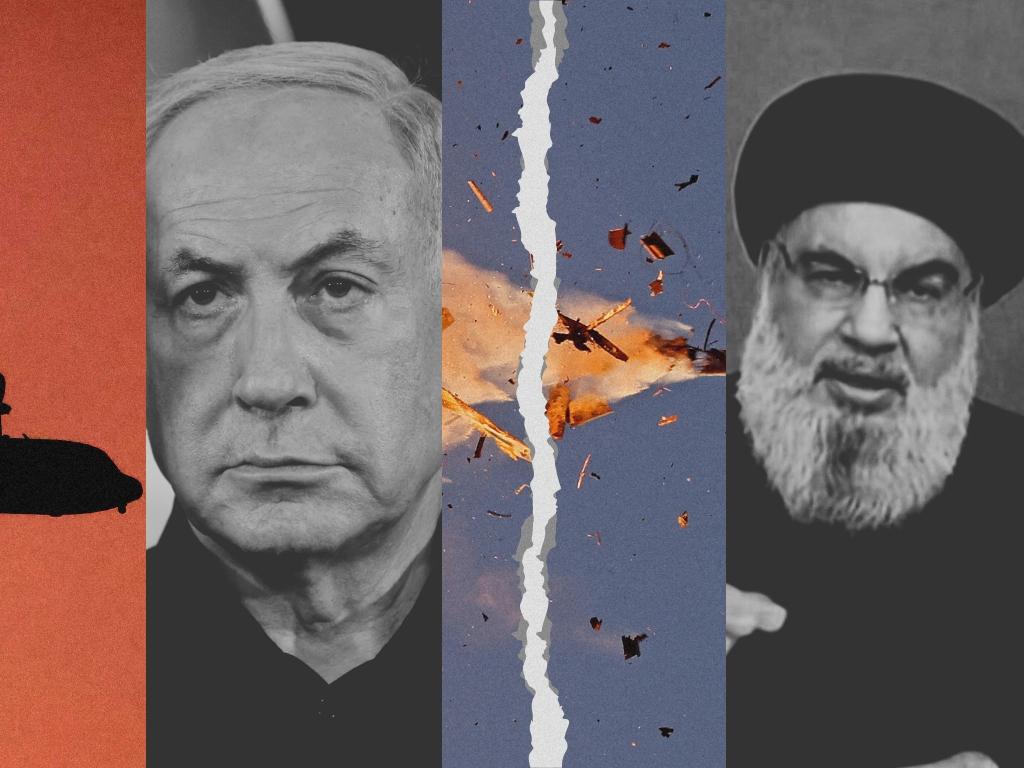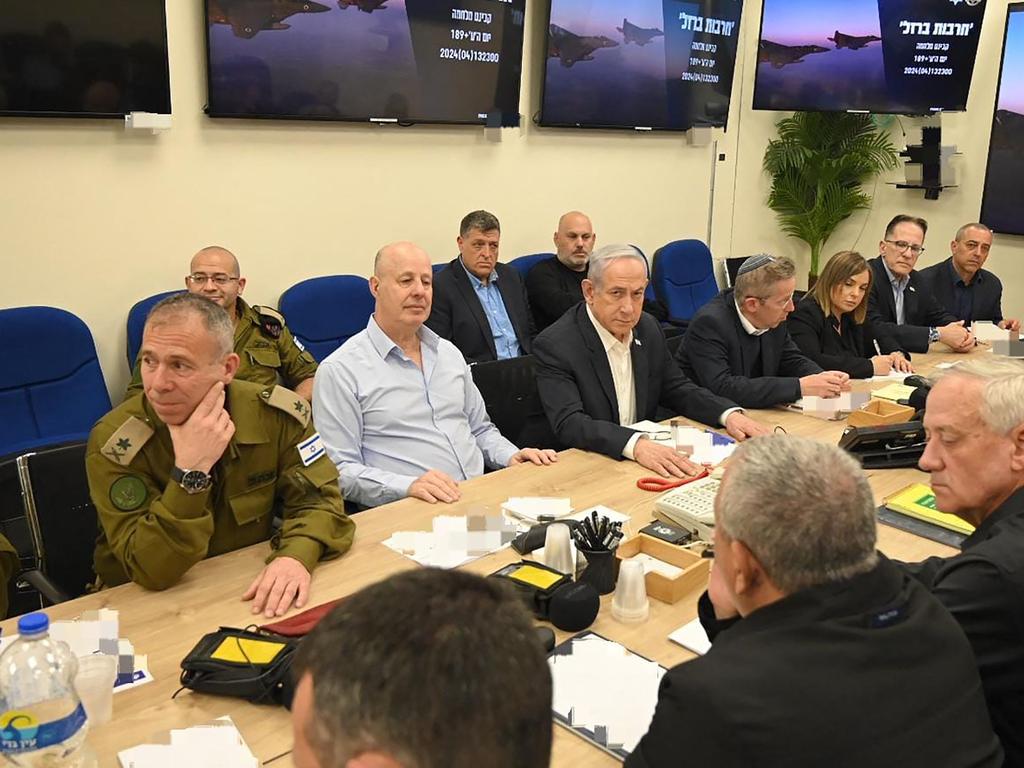After Hezbollah’s retaliation, all eyes fix on Iran
As Israel and Hezbollah de-escalate their conflict after major strikes, Tehran says there will be a ‘precise and calculated’ response to the assassination of Hamas chief Ismail Haniyeh.

Hezbollah chief Hassan Nasrallah on Sunday told Lebanese people they could “take a breath,” saying that after a salvo of rockets on Sunday, the Iran-backed militant group was done with retaliation against Israel for the July killing of a senior leader in Beirut.
Now, all eyes are on Iran, which had said it too would inflict a “painful response” on Israel after the killing of Ismail Haniyeh, leader of Palestinian militant group Hamas, in Tehran hours after the Hezbollah commander’s death.
Hezbollah’s strike, which followed what Israel called a pre-emptive attack on Sunday, prompted congratulatory statements from Hamas and Iran-backed Iraqi militants while Houthi rebels in Yemen called for more attacks. Israel said no major damage occurred. Casualties and damage in Lebanon were also limited, Hezbollah said.
The messages from Iran have been less clear.
On Sunday, Iran’s supreme leader, Ayatollah Ali Khamenei, didn’t address the operation directly but said “war has many forms,” adding: “It doesn’t always mean holding a gun. It means thinking correctly, speaking correctly, identifying correctly, aiming accurately.” The speaker of Iran’s parliament said Israel suffered a defeat at the hands of Hezbollah that was similar to the 2006 war between Lebanon and Israel. “They cannot cover up this defeat,” he said. Its foreign minister said that there would be a “precise and calculated” response to Israel but that “unlike the Zionist regime, Iran isn’t seeking to escalate tensions, although it doesn’t fear them.”
One question is whether Iran will use Sunday’s strike by Hezbollah – which has proclaimed it a success – as cover to avoid further escalation as Tehran looks for a response that would deter Israel from further attacks while also avoiding triggering a regional war.
“Its calculation isn’t necessarily in synergy with the rest of the ‘axis of resistance’,” said Sanam Vakil, a Middle East expert at the U.K.-based Chatham House, referring to Iran’s web of allied militias in the region. “The assumption should not always be that Iran is going to pile in or Iran is going to be involved in what comes next.”
The degree to which Hezbollah’s attack will influence Iran’s own plans will depend on how much Tehran sees itself a part of Hezbollah’s operation. “It is unclear at the moment if Iran considers this part of their own retaliation,” an Israeli security official said.
Some Iranian allies, such as the Houthi rebels in Yemen, have pushed for a harder line.
The Houthis’ defence minister, Maj. Gen. Mohammad Al-Atifi, said Sunday that he wanted to “reassure everyone that the response of the Axis of Jihad and Resistance to the crimes of the Zionist enemy is coming and inevitable.”
While both Israel and Hezbollah have signalled that they want to de-escalate and no attack appeared to be imminent, Pentagon officials believe that the threat to Israel from Iran still exists, Pentagon spokesman Maj. Gen. Pat Ryder said Monday.
“We continue to assess that there is a threat of attack, and we again remain well postured to be able to support Israel’s defence as well as protect our forces should they be attacked,” Ryder said.
Officials in Washington say they had no plans to change the bolstered U.S. military presence in the region.
Late last week, a second U.S. aircraft-carrier strike group arrived in the region. The USS Abraham Lincoln and its accompanying ships travelled from the Pacific as part of the U.S. effort to increase its military presence.
It joins the USS Theodore Roosevelt strike group, which has been operating in the Middle East. The U.S. also deployed an Air Force F-22 Raptor squadron, and the USS Georgia, a cruise-missile submarine, is nearby. The Roosevelt was scheduled to leave this week but now will stay in the region until at least next week or potentially later, a U.S. official said on Monday.
The Pentagon assesses that the decision to boost U.S. military presence in the Middle East over the past few weeks has succeeded in deterring Iran and its proxies from launching a broader attack, Ryder said. The moves sent a “clear message to all actors in the region that we’re serious,” he said.
Immediately following the killing of Haniyeh, Khamenei said it was Iran’s “duty to take revenge” and that Israel had “prepared the ground for a severe punishment.” The country’s acting foreign minister, Ali Bagheri-Kani, told diplomats this month that Iran’s response would be “definitive and decisive.” A few days later, however, Iran’s top diplomat said the country’s response would be “at the right time and in the appropriate shape.” Since the killings in late July, the U.S. and some Arab countries have been working to ease tensions. Israel promised heavy retaliation against Iran if it attacked the country directly again. In April, Iran sent over 300 missiles and drones into Israeli territory, an attack that was largely thwarted after co-ordination with the U.S., Western and Arab allies in the region.
Amos Yadlin, a former head of Israeli military intelligence, said he believes Iran is contemplating a different response than repeating the direct attack on Israel seen in April, based on his own analysis and nonpublic intelligence assessments. The reasons, he said, are threats from the U.S. and promises from Israel that its retaliation would be much stronger than in April, as well as internal opposition from Iranian President Masoud Pezeshkian, who hopes to improve Iran’s economy and ties with the West.
Yadlin said Iran could be looking for a different type of retaliation, including the possible targeting of a high-level Israeli official.
Hezbollah’s attack could provide a way for Iran to de-escalate, said Danny Citrinowicz, who served as head of the Iran branch for the Israeli military and is now a fellow with the Tel Aviv-based Institute for National Security Studies. There would be more pressure on Hezbollah to respond to the killing of Fuad Shukr, since he was a Hezbollah official and he was killed in Beirut. But Haniyeh wasn’t Iranian.
“They have the ability to retaliate in a way that is less severe than what Hezbollah tried today,” said Citrinowicz.
The Haniyeh assassination differed in critical ways from the April strike on a diplomatic facility in Damascus that triggered Iran’s unprecedented direct strike on Israel that month.
“The idea that Iran would unleash hundreds of missiles in retaliation for that type of attack kind of defeats the purpose of deterring Israel, ” said Daniel Sobelman, an Israel-based research fellow with the Middle East Initiative at Harvard Kennedy School. “The only reason that Israel went through the whole hassle” of presumed covert action “was to force the Iranians to retaliate according to those parameters, to those certain rules of the game,” he said.
Dow Jones





To join the conversation, please log in. Don't have an account? Register
Join the conversation, you are commenting as Logout